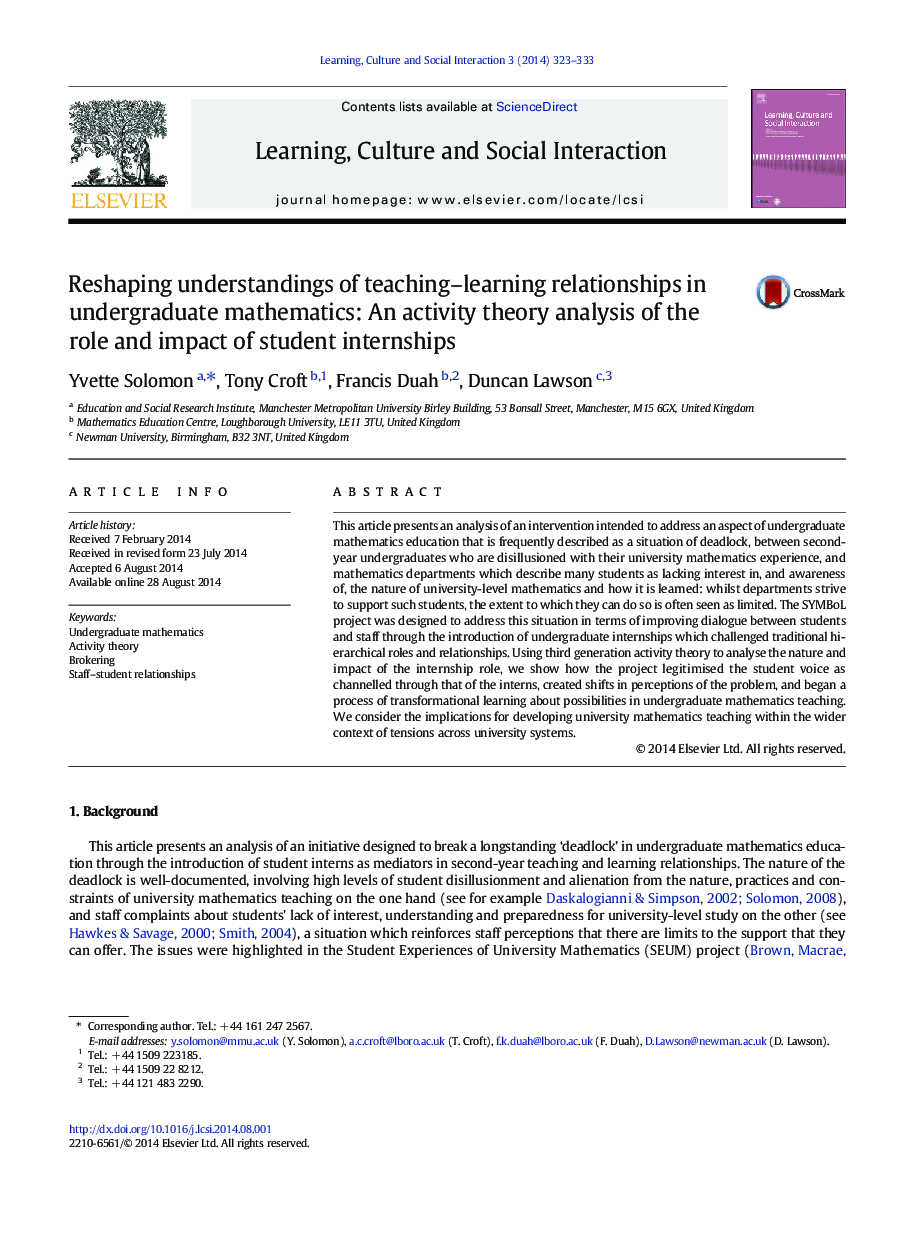| Article ID | Journal | Published Year | Pages | File Type |
|---|---|---|---|---|
| 364366 | Learning, Culture and Social Interaction | 2014 | 11 Pages |
This article presents an analysis of an intervention intended to address an aspect of undergraduate mathematics education that is frequently described as a situation of deadlock, between second-year undergraduates who are disillusioned with their university mathematics experience, and mathematics departments which describe many students as lacking interest in, and awareness of, the nature of university-level mathematics and how it is learned: whilst departments strive to support such students, the extent to which they can do so is often seen as limited. The SYMBoL project was designed to address this situation in terms of improving dialogue between students and staff through the introduction of undergraduate internships which challenged traditional hierarchical roles and relationships. Using third generation activity theory to analyse the nature and impact of the internship role, we show how the project legitimised the student voice as channelled through that of the interns, created shifts in perceptions of the problem, and began a process of transformational learning about possibilities in undergraduate mathematics teaching. We consider the implications for developing university mathematics teaching within the wider context of tensions across university systems.
